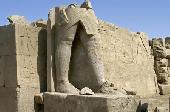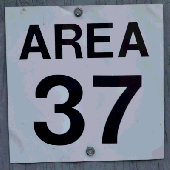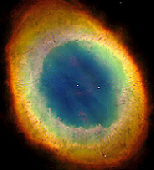-
Thu 14th Jan 2016 23:59 #1 / 21
Assume no wild cards for simplicity.
-
Fri 15th Jan 2016 01:11 #2 / 21
A A A A A A
A A A A A B
A A A A A C
A A A A B B
A A A A B C
A A A A C C
A A A B B B
A A A B B C
A A A B C C
A A A C C C
A A B B B B
A A B B B C
A A B B C C
A A B C C C
A A C C C C
A B B B B B
A B B B B C
A B B B C C
A B B C C C
A B C C C C
A C C C C C
B B B B B B
B B B B B C
B B B B C C
B B B C C C
B B C C C C
B C C C C C
C C C C C CLooks like 10/28 or 36%
-
 Fri 15th Jan 2016 16:30 #3 / 21
Fri 15th Jan 2016 16:30 #3 / 21
Which makes sense. Usually in boards that allow 6 cards you don't get a double cash- which makes wilds super valuable in those games.
-
 Fri 15th Jan 2016 21:16 #4 / 21
Card Membership - putting the power of factories in your hand.
Fri 15th Jan 2016 21:16 #4 / 21
Card Membership - putting the power of factories in your hand.I'll bet if you add the two wilds.. (18-18-18-2 is standard, right?) ..that number jumps up to 40% or above - and I think that's conservative. Those wild cards are going to show up in more than 10% of those hands (conservatively, again), and in every case, it guarantee's you can cash two sets.
-
 Sat 16th Jan 2016 00:47 #5 / 21
Sat 16th Jan 2016 00:47 #5 / 21
Korrun wrote:
A A A A A A
A A A A A B
A A A A A C
A A A A B B
A A A A B C
A A A A C C
A A A B B B
A A A B B C
A A A B C C
A A A C C C
A A B B B B
A A B B B C
A A B B C C
A A B C C C
A A C C C C
A B B B B B
A B B B B C
A B B B C C
A B B C C C
A B C C C C
A C C C C C
B B B B B B
B B B B B C
B B B B C C
B B B C C C
B B C C C C
B C C C C C
C C C C C CLooks like 10/28 or 36%
I don't think this is right. Don't you have to count BCCCCC and CBCCCC and CCBCCC, etc. as all separate hands. They way you list it, I think you are counting CCCCCC and BCCCCC as equally likely, but I don't think they are.
Here's my attempt:
AAA AAA
AAA AAB
AAA AAC
AAA ABA
AAA ABB
AAA ABC
AAA ACA
AAA ACB
AAA ACC
AAA BAA
....
ABANDON SHIP! TOO MANY PERMUTATIONS!
I am going to try and do it in code.
-
 Sat 16th Jan 2016 01:14 #6 / 21
Sat 16th Jan 2016 01:14 #6 / 21
Wrote some code.
I came up with 729 possible six card permutations.
183 of them had two sets in them.
So 0.251028806584. Or basically 1 in 4 chance of having 2 sets if you don't have a wild card.
def isTwoSets(cards):
counts = {}
counts['A'] = cards.count('A')
counts['B'] = cards.count('B')
counts['C'] = cards.count('C')
cv = counts.values()
print counts
print cv
if 6 in cv:
print "all six"
return True
if 3 == cv.count(2):
print "Two of each"
return True
if 4 in cv and 1 in cv:
print "4 of one + one of the each of the others"
return True
def twoSetsInSixCards():
cards = ('A','B','C')
print cards
totalCombos = 0;
twoSetCombos = 0;
for sixcards in itertools.product(cards,repeat=6):
print sixcards
totalCombos+=1
if isTwoSets(sixcards):
twoSetCombos+=1
print twoSetCombos, totalCombos, float(twoSetCombos)/totalCombos
-
 Sat 16th Jan 2016 09:28 #7 / 21
Card Membership - putting the power of factories in your hand.
Sat 16th Jan 2016 09:28 #7 / 21
Card Membership - putting the power of factories in your hand.Why do you need permutations? combinations should do the trick..
CBCCCC is the same as BCCCCC
-
 Sat 16th Jan 2016 13:45 #8 / 21
Sat 16th Jan 2016 13:45 #8 / 21
I think Ozy's right. Same reason why if you roll two dice and take the total that 7 is the most likely answer and 2 and 12 are the least likely.
For cards if you just get one card you have:
A B or C
If you get a second card then it can be A B or C for each of those first cards:
AA AB AC BA BB BC CA CB CC
-
 Sat 16th Jan 2016 14:27 #9 / 21
Sat 16th Jan 2016 14:27 #9 / 21
Given any 5 cards, I think there is only 1 6th card that will allow you to cash in 2 sets (e.g. if first 5 cards are AAAAA, only another A will give you 2 sets...if you have ABCAB then only a C will give you 2 sets) - am I missing anything there?
So, assuming the deck is given a replacement card every time one is dealt and no wild cards, the chance of getting 2 sets with 6 cards would be 1 in 3 since the first 5 cards are irrelevant (again unless I'm overlooking something there).
Throw in wild cards and the chance of getting 2 sets goes up of course (it would be chance of no wild cards in 6 draws times 1/3 plus [1-the chance of no wild cards]).
If the deck contains 18 of A,B and C and 2 wild then the chance of no wilds (again assuming the deck is replaced with new cards as they are dealt out) would be (54/56)^6 which is just a bit over 80%. So we would have .80396 * (1/3) + (1-.80396) = .464027
In case it wasn't clear, having a wild card guarantees that you will have 2 sets with 6 cards (since any 5 non wilds gives one set plus 2 extra cards...add in wild and you get your second set). Adding in wild cards makes quite the difference!
Did I miss anything or make any incorrect assumptions?
-
 Sat 16th Jan 2016 15:40 #10 / 21
Sat 16th Jan 2016 15:40 #10 / 21
Wowy zowy... 36%... 25%... 33%...
-
 Sat 16th Jan 2016 21:46 #11 / 21
Sat 16th Jan 2016 21:46 #11 / 21
Another good example of why I gave up being a math major in college. I don't even understand all of Mongo's answer, but the first 3 paragraphs make complete sense to me, and would agree that 33% is the right answer for no wild cards.
This of course assumes replacement card when card is dealt (as Mongo stated), otherwise, you're looking at what cards are left from the deck, and the probabilities are completely different. If you had AAAAA, the probability of getting a 6th A will be smaller than if you wanted to get a B after having ABCAC, for example
-
 Sat 16th Jan 2016 22:57 #12 / 21
Sat 16th Jan 2016 22:57 #12 / 21
Using combinations (at which I am admittedly very rusty), I came up with 33.3% as well. It should be noted that this is calculated without replacement, assuming that the engine actually uses a "deck" of cards with 18 As, 18 Bs, and 18 Cs.
The probability of getting two sets with no wilds is the sum of the individual probabilities of the different combinations of two sets:
p(AAA and BBB) + p(AAA and CCC) + p(BBB and CCC) + p(AAA and ABC) + p(BBB and ABC) + p(CCC and ABC) + p(ABC and ABC) + p(AAA and AAA) + p(BBB and BBB) + p(CCC and CCC)
Note that
p(AAA and BBB) = p(AAA and CCC) = p(BBB and CCC)
p(AAA and ABC) = p(BBB and ABC) = p(CCC and ABC)
p(AAA and AAA) = p(BBB and BBB) = p(CCC and CCC)
So we can simplify:
3 * p(AAA and AAA) + 3 * p(AAA and BBB) + 3 * p(AAA and ABC) + p(ABC and ABC)
If I did my combinatorics right, then:
p(AAA and AAA) = (18 choose 6) / (54 choose 6) = 0.00071877807
p(AAA and BBB) = (18 choose 3)^2 / (54 choose 6) = 0.02578122685
p(AAA and ABC) = (18 choose 4) * (18 choose 1)^2 / (54 choose 6) = 0.03838748852
p(ABC and ABC) = (18 choose 2)^3 / (54 choose 6) = 0.13867480228
So,
p(2 sets) = 3 * 0.00071877807 + 3 * 0.02578122685 + 3 * 0.03838748852 + 0.13867480228 = 0.3333372826.
Edited Sat 16th Jan 23:03 [history]
-
 Sat 16th Jan 2016 23:11 #13 / 21
Sat 16th Jan 2016 23:11 #13 / 21
If we add in wilds, the probability of 2 sets jumps quite a bit, to 47%. Now the probability, I think, should look like this:
p(AAA and BBB) + p(AAA and CCC) + p(BBB and CCC) + p(AAA and ABC) + p(BBB and ABC) + p(CCC and ABC) + p(ABC and ABC) + p(AAA and AAA) + p(BBB and BBB) + p(CCC and CCC) + p(1 wild) + p(2 wilds)
Note that having at least 1 wild in a hand of six should guarantee you two sets.
Simplified,
3 * p(AAA and AAA) + 3 * p(AAA and BBB) + 3 * p(AAA and ABC) + p(ABC and ABC) + p(1 wild) + p(2 wilds)
Calculating the components,
p(AAA and AAA) = (18 choose 6) / (56 choose 6) = 0.00057175528
p(AAA and BBB) = (18 choose 3)^2 / (56 choose 6) = 0.02050779409
p(AAA and ABC) = (18 choose 4) * (18 choose 1)^2 / (56 choose 6) = 0.03053550223
p(ABC and ABC) = (18 choose 2)^3 / (56 choose 6) = 0.11030950181
p(1 wild) = (2 choose 1) * (54 choose 5) / (56 choose 6) = 0.1948051948
p(2 wild) = (2 choose 2) * (54 choose 4) / (56 choose 6) = 0.00974025974
And putting it all together,
p(2 sets) = 3 * 0.00057175528 + 3 * 0.02050779409 + 3 * 0.03053550223 + 0.11030950181 + 0.1948051948 + 0.00974025974 = 0.46970011115
-
 Sat 16th Jan 2016 23:13 #14 / 21
Sat 16th Jan 2016 23:13 #14 / 21
So basically, I agree with Mongo!
-
 Mon 18th Jan 2016 01:40 #15 / 21
Mon 18th Jan 2016 01:40 #15 / 21
Mongo's post made so much sense, I decided there must be a bug in my code. Went back and discovered I'd missed the case where you had 2 sets of three. Added this to my check for two sets:
if 2 == cv.count(3):
print "two sets of three"
return True
And now I also get .3333 chance.Edited Mon 18th Jan 01:40 [history]
-
 Mon 18th Jan 2016 16:29 #16 / 21
You have been granted the title of Strategist!
Mon 18th Jan 2016 16:29 #16 / 21
You have been granted the title of Strategist!From a few years ago, there is a virtual card deck rather than a replacement card system: http://www.wargear.net/forum/showthread/1547/card_exchange
Hugh wrote:
Yertle wrote:
Toto wrote:
but I would need Tom to tell if the card drawing system takes into account the already used cards.
I'm not tom, but yes there is a "virtual deck" according to the Card Distribution settings. Once that deck runs out a completely new one is created to be drawn from. At least that's the way its been described.
This is accurate. An array is initialized to hold the values of the distribution settings. As each card is drawn, one of the array values is decremented. On the last card (when the total of the values is 1), when the drawcard function is called, the array is reset to its distribution settings.
My original code has been changed to accomodate a non-18,18,18,2 distribution, but my guess is that it is still functionally equivalent to this.
Edited Mon 18th Jan 16:31 [history]
-
 Mon 18th Jan 2016 17:15 #17 / 21
Card Membership - putting the power of factories in your hand.
Mon 18th Jan 2016 17:15 #17 / 21
Card Membership - putting the power of factories in your hand.Mongo wrote:
Given any 5 cards, I think there is only 1 6th card that will allow you to cash in 2 sets (e.g. if first 5 cards are AAAAA, only another A will give you 2 sets...if you have ABCAB then only a C will give you 2 sets) - am I missing anything there?
So, assuming the deck is given a replacement card every time one is dealt and no wild cards, the chance of getting 2 sets with 6 cards would be 1 in 3 since the first 5 cards are irrelevant (again unless I'm overlooking something there).
Did I miss anything or make any incorrect assumptions?
Probably not - I was a musician, not a math major, so my logic is usually flawed by design.
However, in the case of AAAAA being drawn, aren't there 49 cards left, only 13 of which are A, which is only a 25.5% shot to make?
Edited Mon 18th Jan 17:18 [history]
-
 Mon 18th Jan 2016 17:49 #18 / 21
Mon 18th Jan 2016 17:49 #18 / 21
M57 wrote:
However, in the case of AAAAA being drawn, aren't there 49 cards left, only 13 of which are A, which is only a 25.5% shot to make?
You're asking a different question, which is a conditional probability: what is the probability of getting a second set given that the first 5 cards are AAAAA?
It is possible to calculate the (unconditional) probability that a randomly drawn 6-card hand contains two sets using conditional probabilities like what you pose, but you would have to cover every possible initial 5-card hand and then do some fancy maths to deal with unions and intercepts... Which is why I think that Mongo's method is potentially misleading (although it appears to give the right result). The more straightforward method is to use combinations, which Ozy did by brute force code and I calculated through combinations formulas.
-
 Mon 18th Jan 2016 20:13 #19 / 21
Mon 18th Jan 2016 20:13 #19 / 21
and Korrun's initial calculations was correct for sampling with replacement- right?
-
 Wed 20th Jan 2016 06:38 #20 / 21
Card Membership - putting the power of factories in your hand.
Wed 20th Jan 2016 06:38 #20 / 21
Card Membership - putting the power of factories in your hand.Kjeld wrote:
M57 wrote:
However, in the case of AAAAA being drawn, aren't there 49 cards left, only 13 of which are A, which is only a 25.5% shot to make?
You're asking a different question, which is a conditional probability: what is the probability of getting a second set given that the first 5 cards are AAAAA?
It is possible to calculate the (unconditional) probability that a randomly drawn 6-card hand contains two sets using conditional probabilities like what you pose, but you would have to cover every possible initial 5-card hand and then do some fancy maths to deal with unions and intercepts... Which is why I think that Mongo's method is potentially misleading (although it appears to give the right result). The more straightforward method is to use combinations, which Ozy did by brute force code and I calculated through combinations formulas.
Yeah, and I was a sucker for the Monty Hall paradox. I was responding directly to Mongo's specific example as a logical proof.














